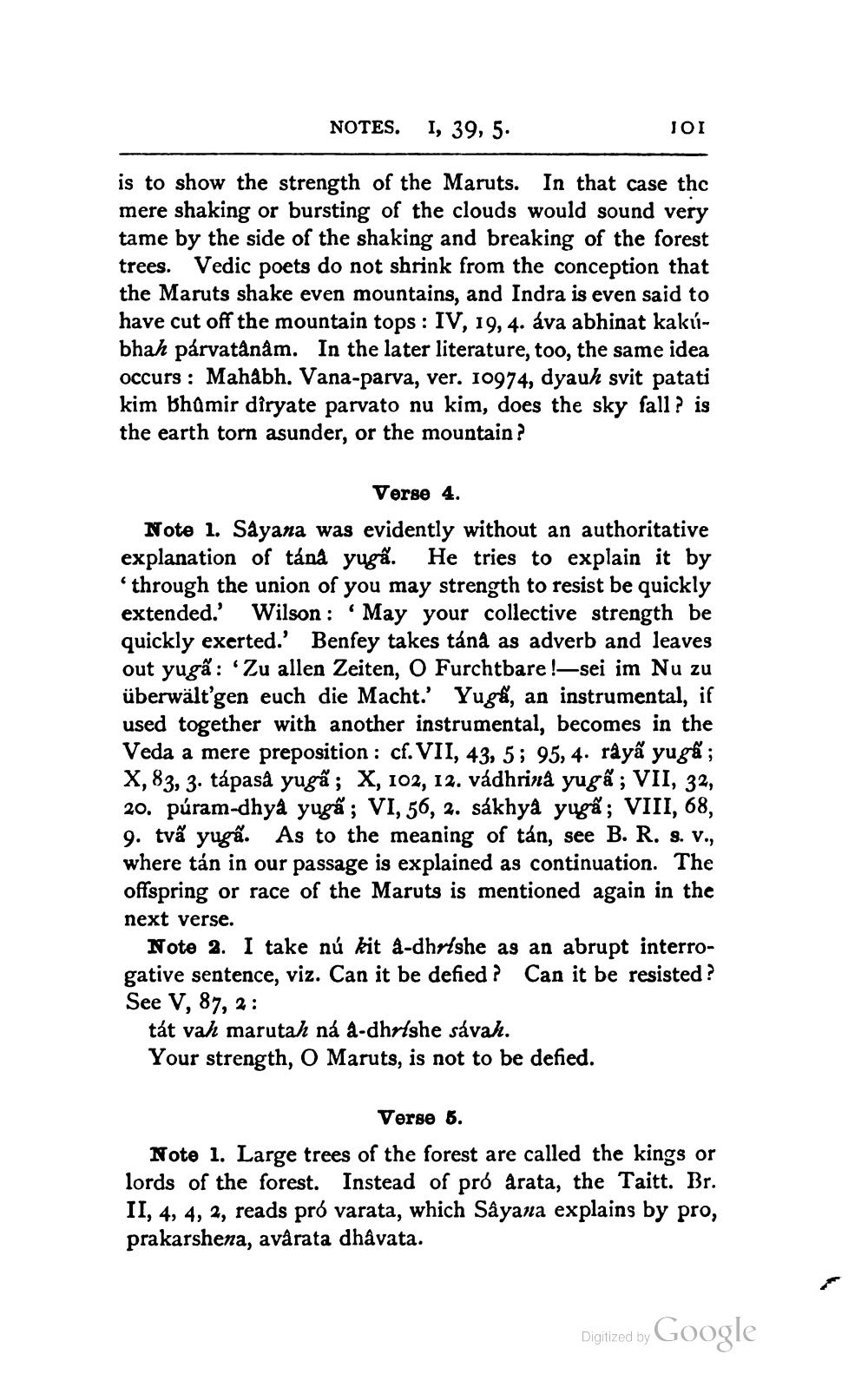________________
NOTES.
I, 39, 5.
101
is to show the strength of the Maruts. In that case the mere shaking or bursting of the clouds would sound very tame by the side of the shaking and breaking of the forest trees. Vedic poets do not shrink from the conception that the Maruts shake even mountains, and Indra is even said to have cut off the mountain tops: IV, 19, 4. áva abhinat kakúbhah párvatanám. In the later literature, too, the same idea occurs : Mahabh. Vana-parva, ver. 10974, dyauh svit patati kim bhQmir diryate parvato nu kim, does the sky fall? is the earth torn asunder, or the mountain?
Verse 4. Note 1. Sayana was evidently without an authoritative explanation of tána yugã. He tries to explain it by
through the union of you may strength to resist be quickly extended.' Wilson : May your collective strength be quickly exerted.' Benfey takes tána as adverb and leaves out yuga: 'Zu allen Zeiten, O Furchtbare !—sei im Nu zu überwält'gen euch die Macht.' Yugă, an instrumental, if used together with another instrumental, becomes in the Veda a mere preposition : cf. VII, 43, 5; 95, 4. raya yugá; X, 83, 3. tápaså yugã; X, 102, 12. vádhrinå yugã ; VII, 32, 20. púram-dhya yugă ; VI, 56, 2. sákhya yugă; VIII, 68, 9. två yugã. As to the meaning of tán, see B. R. 8. v., where tán in our passage is explained as continuation. The offspring or race of the Maruts is mentioned again in the next verse.
Note 2. I take nú kit d-dhrishe as an abrupt interrogative sentence, viz. Can it be defied? Can it be resisted ? See V, 87, 2:
tát vah marutah na d-dhrtshe sával. Your strength, O Maruts, is not to be defied.
Verse 6. Note 1. Large trees of the forest are called the kings or lords of the forest. Instead of pro arata, the Taitt. Br. II, 4, 4, 2, reads pró varata, which Sâyana explains by pro, prakarshena, avarata dhâvata.
Digitized by
Digitized by Google




